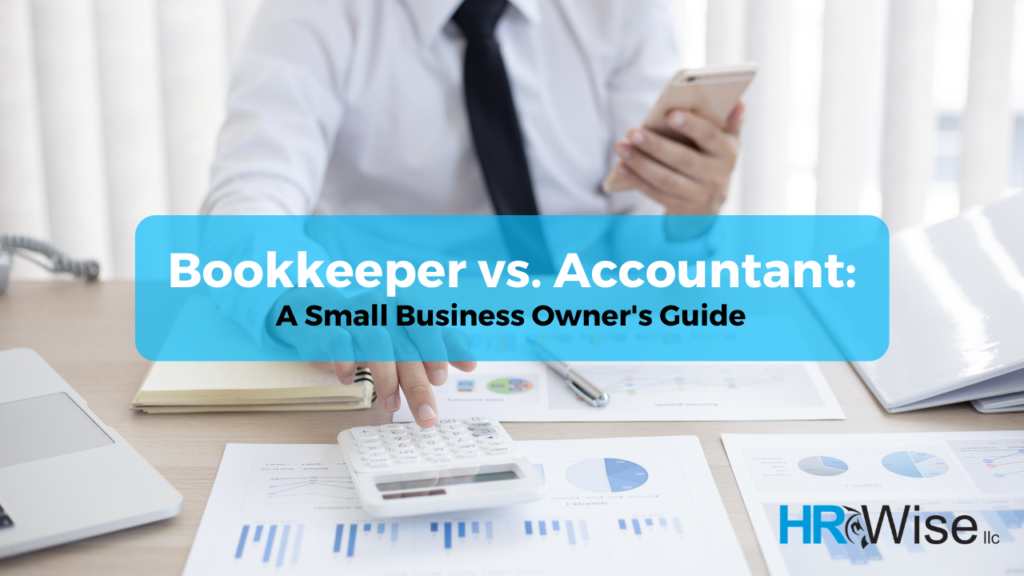Introduction:
In the dynamic world of business, managing finances is a critical aspect that can make or break your success. Two key players in this realm are bookkeepers and accountants, each bringing unique skills to the table. At HR Wise, we understand the significance of making informed decisions for your business. In this blog, we will dive into the differences between bookkeepers and accountants, helping you make the right choice to ensure your financial success.
Bookkeepers and Accountants: A Closer Look:
When it comes to managing finances, bookkeepers and accountants are often viewed as the same, but they serve distinct roles in maintaining your business’s financial health.
Bookkeepers:
Bookkeepers are the meticulous organizers of financial data. They handle day-to-day tasks such as recording transactions, maintaining ledgers, and reconciling accounts. At HR Wise, we recognize the value of accurate financial records in streamlining your operations and decision-making.
Accountants:
Accountants, on the other hand, are strategic thinkers who analyze and interpret the financial data compiled by bookkeepers. They provide insights into your business’s financial performance, prepare financial statements, offer tax advice, and help strategize for growth. Our team at HR Wise understands the strategic role accountants play in aligning financial goals with your business objectives.
Key Differences:
Roles and Responsibilities: While bookkeepers focus on recording financial transactions, accountants take a broader view, providing analysis and strategic guidance.
Skill Set: Bookkeepers require strong attention to detail and organization skills. Accountants, in addition to these skills, possess analytical thinking and a deep understanding of financial principles.
Financial Analysis: Accountants offer valuable insights by analyzing trends, identifying opportunities for cost-saving, and suggesting strategies for growth. This forward-thinking approach can be a game-changer for your business, and at HR Wise, we’re committed to connecting you with the right professionals.
When to Choose Bookkeepers:
If your business requires accurate data entry, record keeping, and day-to-day financial maintenance, a skilled bookkeeper is the ideal choice. HR Wise can help you find the perfect match to ensure your financial records are in order.
When to Choose Accountants:
For strategic financial planning, tax advice, and long-term growth strategies, accountants are indispensable. HR Wise specializes in linking businesses with experienced accountants who can guide your financial journey.
Conclusion:
At HR Wise, we recognize that the success of your business is intertwined with sound financial management. Bookkeepers and accountants are both vital players in this arena and understanding their roles is key to making the right decision for your business’s financial well-being. Whether you need an expert bookkeeper or a seasoned accountant, HR Wise has the expertise to connect you with professionals who align with your goals. Contact us today to take a step closer to financial success!
Disclaimer: This blog is for informational purposes only. For personalized advice, please consult a financial professional.
Contact HR Wise:
For all your HR and business consulting needs, visit us at hrwisellc.com or contact us at cshepherd@hrwisellc.com.
Tags: Bookkeeper, Accountant, Financial Management, HR Wise, Business Finance, Financial Analysis, Decision-making

